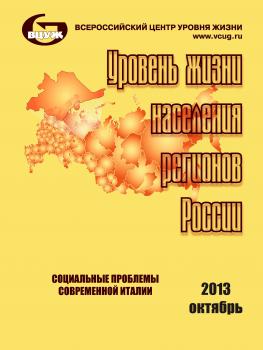In my report I want to present 10 Theses on the Future Work in the 21st century. For each hypothesis, a proposal of how to react to this development will be off ered. My examples are related mainly to societies in Western Europe, who are the ones most involved in the rapid development of global capitalism. However, we suppose that the presented evolutions and issues in the foreseeable future will occur worldwide. My overarching assumption is that over the next few years the tendencies of social uncertainty and social inequality — caused by the globalized and digitized capitalism — will increase radically. My contribution is committed to the method of Horkheimer / Adorno of classical critical theory, what means to analyze actual states and to propagate — even utopian — target states.
precarity, social uncertainty, work, technological progress, knowledge, social pathologies, exclusion.
Precarity: from periphery to center of society
Th e current developments in the world of work in Western European societies are an indicator of all leading and rising industrialized countries (especially Russia). Precarious working and living conditions — mainly characterized by uncertainty concerning planning and future — were fi rst classifi ed as a phenomenon of lower social milieus. Recently, precarious situations have gradually attained the center of societies. Fixedterm work contracts, temporary work, on-call employment, and other forms of precarious employment contracts are not only a feature of unskilled workers, but to fi nd at all levels of employment.
Particularly in the UK, France and Germany, more and more people are aff ected by precarious working conditions and, to that effect of precarious living conditions. As French sociologist Robert Castel (2011) describes, this precariousness is associated with the abolition of social gains –for that workers have fought in countless industrial disputes — and the dismantling of the welfare state.
1. Boltanski. Luc/Chiapello, Éve: Der neue Geist des Kapitalismus (2003). Konstanz: UVK.
2. Bourdieu, Pierre /Wacquant, Loic (2000): Schöne neue Begriff swelt. Le Monde diplomatique, 12.05.2000.
3. Bourdieu, Pierre (2004): Der Staatsadel. Konstanz: UVK.
4. Bourdieu, Pierre et. al (1997): Das Elend der Welt. Zeugnisse und Diagnosen alltäglichen Leidens an der Gesellschaft. Konstanz: UVK.
5. Castel, Robert (2011): Die Krise der Arbeit. Neue Unsicherheiten und die Zukunft des Individuums. Hamburg: Hamburger Edition.
6. Ehrenberg, Alain (2011): Das Unbehagen der Gesellschaft. Berlin: Suhrkamp.
7. Foucault, Michel: Überwachen und Strafen (1994). Frankfurt am Main: Suhrkamp.
8. Häni, Daniel / Schmidt, Enno (2008): Grundeinkommen. http://www.forum-grundeinkommen.de/fi lmebge/grundeinkommen-filmessay-daniel-haeni-ennoschmidt.
9. IFR Statistical Department (2014): World Robotics - Industrial Robots 2014.
10. http://www.worldrobotics.org/uploads/media/Executive_Summary_WR_2014_02.pdf
11. Jung, Alexander / Schulz, Thomas (2015): Der Maschinen-Schwarm. SPIEGEL 10/2015.
12. Lyotard, Jean-Francois (1979): Das postmoderne Wissen. Wien: Passagen.
13. Schultheis, Franz/Schulz, Kristina (Hrsg.) (2005): Gesellschaft mit begrenzter Haftung. Zumutungen und Leiden im deutschen Alltag. Konstanz: UVK.
14. Schultheis, Franz/Vogel, Berthold/Gemperle, Michael (Hrsg.) (2010): Ein halbes Leben. Biografi sche Zeugnisse aus einer Arbeitswelt im Umbruch. Konstanz: UVK.
15. Wacquant, Loic / Bourdieu, Pierre (1992): An Invitation to Refl exive Sociology. Chicago: The University of Chicago Press.





